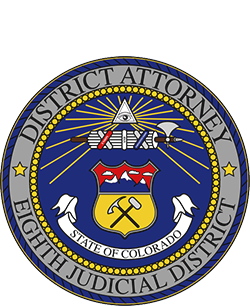Restitution is the repayment of financial losses to crime victims paid by the defendant. An order for restitution may be issued by the court as determined by Colorado Revised Statue 18-1.3-603. Restitution cannot be ordered until the defendant either pleads guilty or is found guilty at trial and the court decides the sentence.
If you have incurred out-of-pocket expenses or other economic loss because of your victimization, you have a right to request the court order the defendant(s) to reimburse you. If you are listed in the law enforcement incident reports as a crime victim, you will receive a victim impact statement in the mail after criminal charges are filed. If you don't receive one or have questions about restitution, please call our Restitution Coordinator at (970) 498-7202.
The District Attorney's Office is responsible for providing documentation to the court about the amount of restitution owed to a victim in the criminal case. The judge can only consider losses directly caused by the crime, and the victim impact statement is used to help make that determination. Once a specific amount of restitution is ordered by the court, the defendant will be required to make payments to a registry of the Court Clerk's Office. When offenders are not able to pay restitution in full, a payment schedule is established that details when payments must be made to the court and distributed to the victim. Responsibility for the collection of restitution lies with the judicial department, not with the District Attorney's Office. Restitution payments owed to victims will be made by the court.

